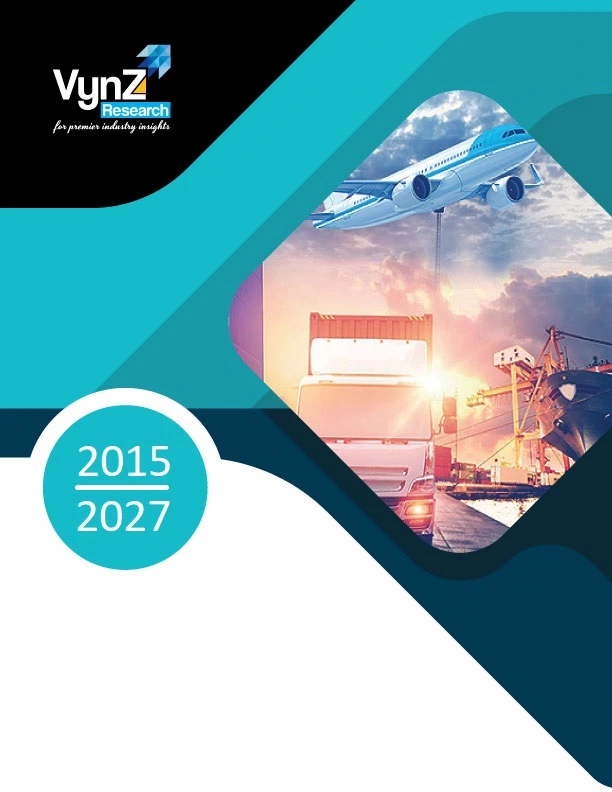Industry Overview
The Global Automotive Cyber Security Market was valued at USD 2.4 billion in 2023 and is expected to reach USD 7.5 billion by 2030, growing at a CAGR of 15.2% during 2025-2030. The global automotive cybersecurity market is growing at a double-digit rate during the forecast period. The major reason behind the high growth is security concerns with the rise in connection cars and automated vehicle adoption. Further, it is expected that new cars coming on the road will be connected. These vehicles will be fitted with commanding communications capabilities to enable a lot of driving features and other enhanced features. The internal control systems are expected to exchange data through complex internal networks and from other connected vehicles and the outside world through the Internet of Things (IoT). This makes the car more vulnerable to cyber risk and hence boosts the demand for automotive cybersecurity.

There is a gradual increase in e-mobility in developing nations in APAC, Africa, and Latin America, which is another area with high cyber risk. Therefore, the electric vehicle OEMs, fleets, and other stakeholders in the ecosystem count on company-fitted security to succeed in this complex situation, whether in-vehicle security or network security.
Automotive Cyber Security Market Segmentation
Insight by Security Type
Based on security type, the market is segmented into endpoint security, application security, and wireless network security. Among these security types, the endpoint security segment captures the highest market share in 2020 and is expected to grow at the fastest rate during the forecast period, owing to its numerous endpoint devices such as smartphones, wi-fi connected to the vehicles.
Insight by Fitting Type
Based on fitting type, the market is subdivided into in-vehicle and external cloud. Among these, in-vehicle accounted for the foremost share in the automotive cybersecurity market in 2020 with growing investments of OEMs towards security features deployment. However, cloud integration is growing rapidly and is expected to capture a decent share of the automotive cybersecurity market in years to come.
Insight by Application
Based on application, the market is subdivided into telematics systems, infotainment systems, powertrain systems, body control & comfort systems, communication systems, and ADAS & safety systems. Of all these applications, the powertrain application segment accounted for the foremost share in the automotive cybersecurity market in 2020, owing to the integration of several electric component electronic control units (ECUs) in vehicles that are highly vulnerable to cyberattacks.
Insight by Vehicle Type
Based on vehicle type, the market is bifurcated into passenger cars and commercial vehicles. Passenger car is expected to account for the higher market share in 2020 and is expected to grow at the fastest rate during the forecast period with a large number of tier 1 and tier 2 OEMs investing in enhancing security features.
Global Automotive Cyber Security Market Report Coverage
|
Report Metric
|
Details
|
|
Historical Period
|
2018 - 2023
|
|
Base Year Considered
|
2024
|
|
Forecast Period
|
2025 - 2030
|
|
Market Size in 2024
|
U.S.D. 2.4 Billion
|
|
Revenue Forecast in 2030
|
U.S.D. 7.5 Billion
|
|
Growth Rate
|
15.2%
|
|
Segments Covered in the Report
|
By Security Type,By Fitting Type,By Application
|
|
Report Scope
|
Market Trends, Drivers, and Restraints; Revenue Estimation and Forecast; Segmentation Analysis; Impact of COVID-19; Companies’ Strategic Developments; Market Share Analysis of Key Players; Company Profiling
|
|
Regions Covered in the Report
|
North America, Europe, Asia-Pacific (APAC) and Rest of the World (RoW)
|
Industry Dynamics
Automotive Cyber Security Industry Trends
One of the key trends prevailing in the market is a gradual increase in other industry players' attention and investments in the automotive industry. These players are from diverse industries including IT & software, mobility, wireless and wired communication providers, and so on.
Automotive Cyber Security Market Growth Drivers
Growing automation in the automotive sector and rising adoption of connected cars is giving rise to the number of electric components integrated into the vehicle. This is making vehicles more vulnerable to cyberattacks. All these factors will impact the automotive cybersecurity progression in the market shortly.
Automotive Cyber Security Market Challenges
High initial deployment, as well as maintenance costs, may obstruct the growth of the automotive cybersecurity market. Technology within the sector keeps on changing every year which makes the automotive OEMs difficult to switch and therefore, restricts the automotive cybersecurity market growth.
Automotive Cyber Security Market Geographic Overview
Geographically, APAC, is the largest and fastest-growing automotive cybersecurity market with the largest number of vehicle production every year, advancing in-vehicle electronic architecture, and a growing number of automotive OEMs and electronic component suppliers in the region. This will further upsurge the growth of the Chinese automotive cybersecurity market in years to come.
Further, the US and Europe hold the second and third largest automotive cybersecurity market share respectively, due to the growing electric vehicle adoption, and the increasing deployment of connected cars.
Automotive Cyber Security Market Competitive Insight
Key players in the automotive cybersecurity market include automotive OEMs as well as cybersecurity service providers in general. Further, mergers & acquisitions are key strategies adopted by the OEMs in the market. For instance, in 2016, Harman which is a part of a Samsung company now TowerSec, an automotive cybersecurity service provider maintained their presence in the market.
HARMAN International is a global leader in connected car technology, design and analytics, lifestyle audio innovations, cloud services and IoT solutions.
Continental AG is a German multinational automotive parts manufacturing company that specializes in automotive safety, powertrain, tires, brake systems vehicle electronics, chassis components, tachographs and other parts for the automotive and transportation purposes.
Some of the key players operating in the automotive cybersecurity market are Harman International, Continental AG, Robert Bosch GmbH, Denso Corporation, Aptiv PLC, Symantec Corporation, NXP Semiconductors N.V., Honeywell International Inc., Trillium Secure Inc., and Escrypt GmbH.
Recent Developments by Key Players
Continental Tire Plant has thus taken an important step towards its goal of completely CO2-neutral production. The company uses both self-generated solar power and renewable electricity from the power grid for its steam generation.
HARMAN Professional Solutions, the global leader in video, audio, lighting and control technologies has opened its new Pecs, Hungary, manufacturing plant to accommodate growth in production for its Martin brand that provides lighting fixtures for the entertainment and architectural lighting industries and certain loudspeaker products.
Primary Research
VynZ Research conducts extensive primary research to understand the market dynamics, validate market data, and have key opinions from industry experts. The key profiles approached within the industry include, CEO, CFO, CTO, President, Vice President, Product Managers, Regional Heads, and Others. Also, end user surveys comprising of consumers are also conducted to understand consumer behavior.
The Automotive Cybersecurity Market report offers a comprehensive market segmentation analysis along with an estimation for the forecast period 2025–2030.
Segments Covered in the Report
- Security Type
- Endpoint Security
- Application Security
- Wireless Network Security
- Fitting Type
- In-Vehicle
- External Cloud
- Application
- Telematics System
- Infotainment System
- Powertrain System
- Body Control & Comfort System
- Communication System
- ADAS & Safety System
- Vehicle Type
- Passenger Vehicle
- Commercial Vehicle
Geographical Segmentation
- North America
- Europe
- Germany
- U.K.
- France
- Italy
- Spain
- Russia
- Rest of Europe
- Asia-Pacific (APAC)
- China
- Japan
- India
- South Korea
- Rest of Asia-Pacific
- Rest of the World (RoW)
- Brazil
- Saudi Arabia
- South Africa
- U.A.E.
- Other Countries
.png)
Source: VynZ Research
.png)
Source: VynZ Research




.png)